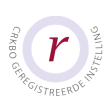All classes in English?

Last year I blogged about a small research done by university students to find out if mbo-schools are offering more and more classes in English, also known as bilingual education, TTO, tweetalig onderwijs or CLIL (content and language integrated learning). This research was done again this year by a new group of students of the Free University in Amsterdam. This time they could focus a bit more; I found a nice list of 12 mbo-schools, part of a TTO-network, IVS-Alliance. The goal of these mbo-schools is to stimulate the global skills of students and make them more aware of international environments and corporate cultures by giving them the BTEC-diploma, an international qualification for vocational studies. Some schools also offer a Cambridge Certificate for proven English proficiency. Both certificates helps students to shorten a consecutive study at for instance hbo.
So again, as a guest lecturer, I asked my students to find an answer to the question: ‘Can we see a trend of bilingual education at mbo’s and if so, what are the consequences (pros and cons)?’ Last year we didn’t see a big trend yet, but what about this year? In groups they approached one assigned school and interviewed contact persons, often managers or staff of the international office. The schools they approached were: Deltion College, Zwolle • Koning Willem I College, Den Bosch • ROC Zadkine, Rotterdam • Albeda College, Rotterdam • Rijn IJssel College, Arnhem • ROC van Amsterdam, Hoofddorp • Lentiz onderwijsgroep, Naaldwijk• ROC Midden Nederland, Utrecht • ROC Nova College, Haarlem • ROC Eindhoven, Eindhoven • ROC West Brabant, Roosendaal • Groenhorst College, Barneveld.
The students asked questions such as “How many students follow TTO? Why did your school start bilingual classes? What were the responses of teachers on the announcement of change in the teaching language? How is the English proficiency versus the Dutch proficiency of TTO-students after a certain time of having had classes in English? What are the pros and cons for students and teachers?
And?
Though the results should not be seen as representative simply because the group of schools was too small, we can still say that the majority of the IVS-Alliance schools show a serious willingness to establish and/or maintain TTO-programs in their curriculum, especially in business studies. However, it is not yet provided at a large scale. Only a very small percentage of students – between 1 and 2% of the total population – attend bilingual classes in their study. Six schools show that TTO draws more students and inspires both students and teachers more than it does in regular studies to look beyond borders. Most schools mention two drawbacks: one is that it is hard to find qualified teachers for TTO and the other is that schools don’t go all the way developing a full bilingual program due to few available means and high costs.
In short, we do have vocational schools in The Netherlands with classes in English, it is still a minor group, but this group sees more positive sides to keep developing TTO than negative ones. Call it a tiny trend. To be continued next year!


annemieke
I would like to know if you continued the investigation on MBO level.
Sandra Wormgoor
Hi Annemieke,
Thanks for your question. Unfortunately I couldn’t follow up on the research of English as a teaching language at MBO schools. Partly because I wasn’t able to retrieve more data from crucial sources and partly because the VU university asked me to focus on another topic to lecture on in 2012 (see my blog on this: http://www.taaltutor.nl/nieuws/dutch-causes-many-mistakes-in-english/). So I am sorry to say that I can’t really draw a conclusion on the current status of English as a teaching language in MBO education. It would still be very interesting to do so though.
Sandra
Taaltutor